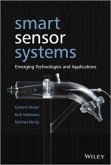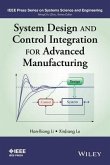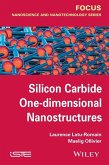The building blocks of MEMS design through closed-form solutions
Microelectromechanical Systems, or MEMS, is the technology of very small systems; it is found in everything from inkjet printers and cars to cell phones, digital cameras, and medical equipment. This book describes the principles of MEMS via a unified approach and closed-form solutions to micromechanical problems, which have been recently developed by the author and go beyond what is available in other texts. The closed-form solutions allow the reader to easily understand the linear and nonlinear behaviors of MEMS and their design applications.
Beginning with an overview of MEMS, the opening chapter also presents dimensional analysis that provides basic dimensionless parameters existing in large- and small-scale worlds. The book then explains microfabrication, which presents knowledge on the common fabrication process to design realistic MEMS. From there, coverage includes:
All chapters from first to last use a unified approach in which equations in previous chapters are used in the derivations of closed-form solutions in later chapters. This helps readers to easily understand the problems to be solved and the derived solutions. In addition, theoretical models for the elements and systems in the later chapters are provided, and solutions for the static and dynamic responses are obtained in closed-forms.
This book is designed for senior or graduate students in electrical and mechanical engineering, researchers in MEMS, and engineers from industry. It is ideal for radio frequency/electronics/sensor specialists who, for design purposes, would like to forego numerical nonlinear mechanical simulations. The closed-form solution approach will also appeal to device designers interested in performing large-scale parametric analysis.
Microelectromechanical Systems, or MEMS, is the technology of very small systems; it is found in everything from inkjet printers and cars to cell phones, digital cameras, and medical equipment. This book describes the principles of MEMS via a unified approach and closed-form solutions to micromechanical problems, which have been recently developed by the author and go beyond what is available in other texts. The closed-form solutions allow the reader to easily understand the linear and nonlinear behaviors of MEMS and their design applications.
Beginning with an overview of MEMS, the opening chapter also presents dimensional analysis that provides basic dimensionless parameters existing in large- and small-scale worlds. The book then explains microfabrication, which presents knowledge on the common fabrication process to design realistic MEMS. From there, coverage includes:
- Statics/force and moment acting on mechanical structures in static equilibrium
- Static behaviors of structures consisting of mechanical elements
- Dynamic responses of the mechanical structures by the solving of linear as well as nonlinear governing equations
- Fluid flow in MEMS and the evaluation of damping force acting on the moving structures
- Basic equations of electromagnetics that govern the electrical behavior of MEMS
- Combining the MEMS building blocks to form actuators and sensors for a specific purpose
All chapters from first to last use a unified approach in which equations in previous chapters are used in the derivations of closed-form solutions in later chapters. This helps readers to easily understand the problems to be solved and the derived solutions. In addition, theoretical models for the elements and systems in the later chapters are provided, and solutions for the static and dynamic responses are obtained in closed-forms.
This book is designed for senior or graduate students in electrical and mechanical engineering, researchers in MEMS, and engineers from industry. It is ideal for radio frequency/electronics/sensor specialists who, for design purposes, would like to forego numerical nonlinear mechanical simulations. The closed-form solution approach will also appeal to device designers interested in performing large-scale parametric analysis.
Dieser Download kann aus rechtlichen Gründen nur mit Rechnungsadresse in D ausgeliefert werden.









